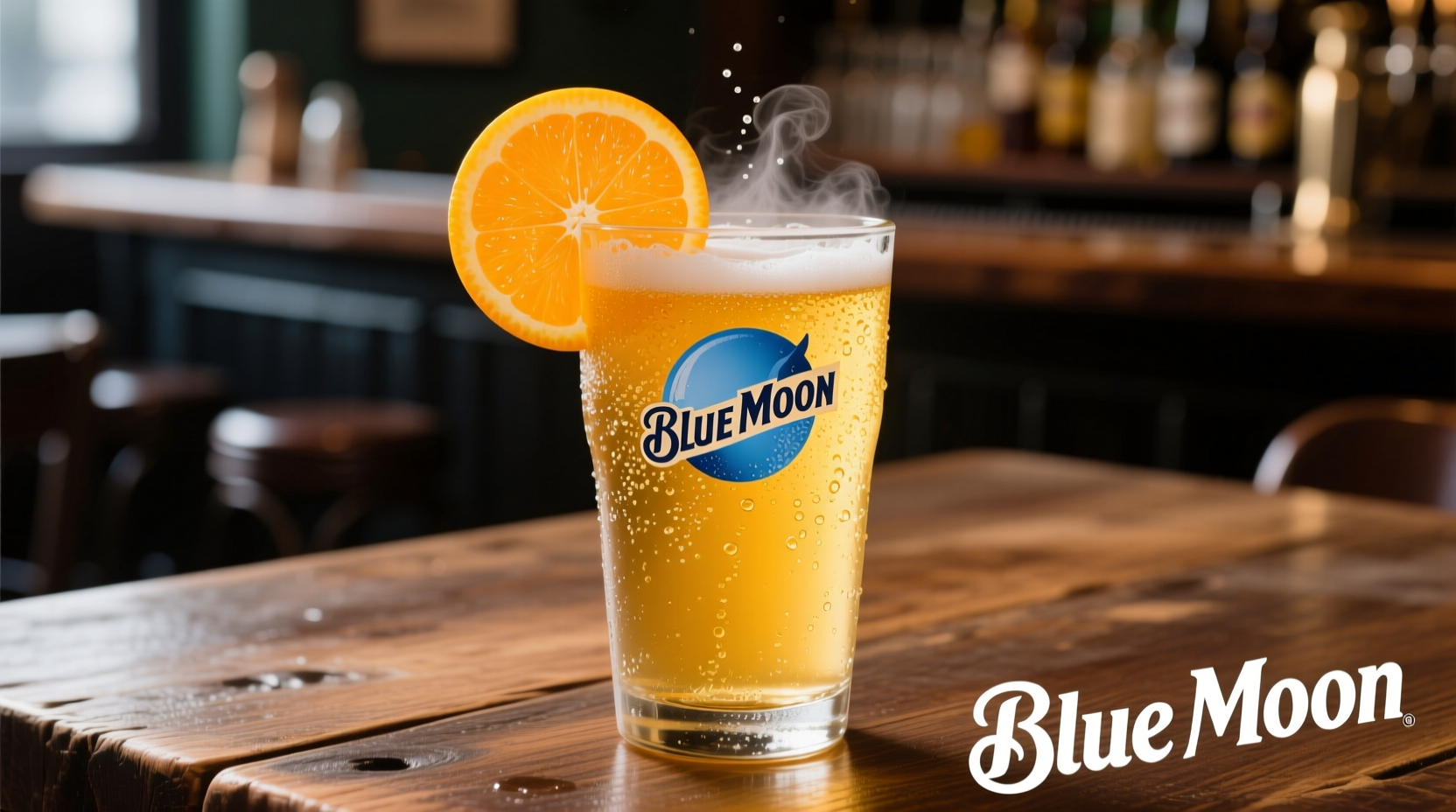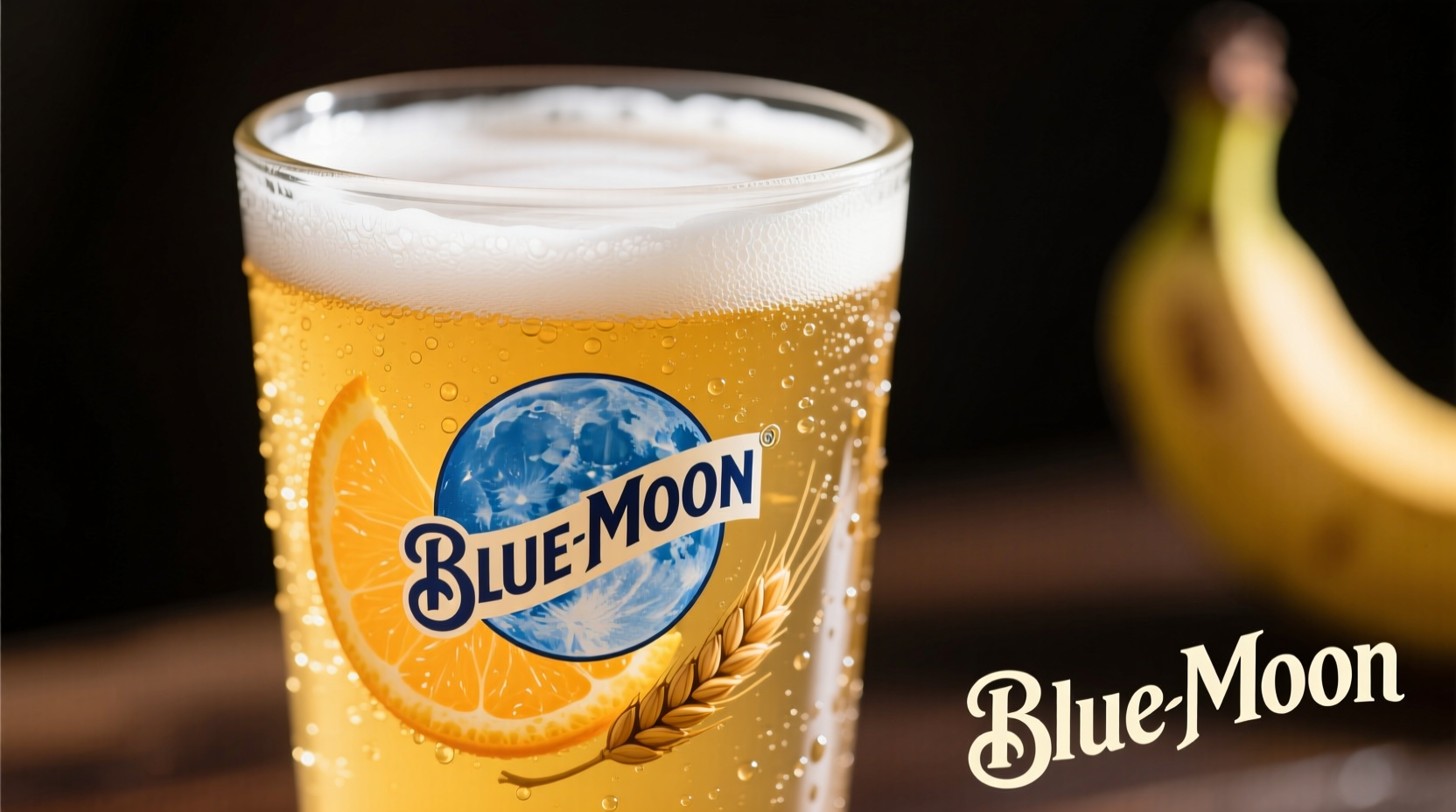Discover exactly what makes Blue Moon's flavor profile stand out in the crowded craft beer market. This comprehensive guide breaks down the specific taste elements, ingredient contributions, and sensory experience that have made Blue Moon Belgian White America's favorite wheat beer for over two decades. Whether you're considering your first sip or looking to deepen your appreciation, you'll learn precisely how to identify its distinctive characteristics and why it appeals to both beer enthusiasts and casual drinkers alike.
Deconstructing Blue Moon's Signature Flavor Profile
Blue Moon Belgian White delivers a carefully balanced flavor experience that begins with vibrant citrus notes and finishes with subtle spice. When poured correctly into a chilled glass, the beer presents a hazy golden appearance with a thick, pillowy white head that releases aromatic hints of orange and coriander before your first sip.
The initial taste reveals a smooth, medium-bodied profile dominated by sweet orange peel notes, followed by subtle coriander spice that provides complexity without overwhelming bitterness. Unlike many craft beers that emphasize hop bitterness, Blue Moon maintains a gentle 10.5 IBU (International Bitterness Units), creating an approachable experience with just enough structure to balance its slight sweetness.
According to the Beer Judge Certification Program style guidelines, authentic witbiers like Blue Moon should showcase "low to moderate spice and citrus notes" with "medium-light to medium body"—characteristics perfectly embodied in this popular American interpretation of the Belgian classic.

How Blue Moon Differs From Traditional Belgian Witbiers
While inspired by traditional Belgian white beers, Blue Moon features several distinctive characteristics that set it apart from its European counterparts. This comparison highlights the key differences that define Blue Moon's unique flavor identity:
| Characteristic | Traditional Belgian Witbier | Blue Moon Belgian White |
|---|---|---|
| Primary Citrus Note | Bitter orange peel | Sweet orange peel |
| Coriander Level | Moderate spice presence | Pronounced but balanced |
| Body/Mouthfeel | Lighter, crisper | Medium-bodied, smoother |
| Alcohol Content | 4.5-5.5% ABV | 5.4% ABV |
| Yeast Character | Phenolic notes common | Clean fermentation profile |
This distinctive American interpretation maintains the essential witbier elements while creating a more approachable profile for mainstream American palates. The use of sweet orange peel rather than bitter varieties, combined with a carefully calibrated coriander level, creates Blue Moon's signature smoothness that has contributed to its widespread popularity.
Why the Orange Slice? Understanding Blue Moon's Serving Tradition
The practice of adding an orange slice to Blue Moon isn't just marketing—it serves a genuine sensory purpose. When properly executed, the citrus garnish enhances specific flavor elements through three mechanisms:
- Aromatic activation: Squeezing the orange wedge releases additional citrus oils that complement the beer's existing orange peel notes
- Bitterness modulation: The natural citric acid helps balance the beer's slight sweetness
- Visual presentation: The vibrant color contrast enhances the drinking experience before the first sip
Research published in the Journal of Sensory Studies confirms that visual elements significantly impact flavor perception, explaining why the orange garnish has become such an integral part of the Blue Moon experience.
Optimal Tasting Experience: Temperature, Glassware & Technique
To fully appreciate Blue Moon's nuanced flavor profile, proper serving technique matters more than many realize. Follow these professional recommendations for the best tasting experience:
- Temperature: Serve chilled between 40-45°F (4-7°C)—never ice-cold, which numbs flavor receptors
- Glassware: Use a tulip or wheat beer glass to concentrate aromas while maintaining the signature head
- Pouring technique: Tilt glass 45 degrees, pour slowly down the side, then finish with a straight pour to create the proper head
- Tasting sequence: First smell the aromas, then take a small sip, swish gently, and note the flavor progression
When served properly, Blue Moon reveals its complete flavor journey: initial citrus sweetness, followed by subtle spice notes, and finishing with a clean, refreshing aftertaste that invites another sip. This progression explains why it remains a popular choice for both beer newcomers and experienced enthusiasts.
Food Pairing Recommendations That Enhance Blue Moon's Flavor
Blue Moon's balanced profile makes it exceptionally versatile with food. These pairings highlight how specific dishes can enhance or complement its distinctive flavor characteristics:
- Seafood dishes: Grilled shrimp or fish tacos allow the citrus notes to shine while cutting through richness
- Cheese selections: Mild goat cheese or brie creates a delightful contrast with the beer's subtle spice
- Salads with citrus vinaigrette: The dressing echoes Blue Moon's orange notes while the greens provide refreshing contrast
- Light pasta dishes: Lemon-herb chicken pasta creates harmony with the beer's citrus and spice elements
The key to successful pairings lies in matching intensity levels—Blue Moon's medium body works best with dishes that won't overwhelm its delicate flavor profile. Avoid heavily spiced or intensely bitter foods that would compete with rather than complement its nuanced characteristics.
Common Flavor Misconceptions Clarified
Several misconceptions about Blue Moon's flavor persist in beer discussions. Let's clarify the most common misunderstandings with factual information:
- "Blue Moon is just a sweet beer": While it has subtle sweetness, the 10.5 IBU bitterness and coriander spice create balance—lab analysis shows its residual sugar content is moderate for the style
- "The orange slice is just for show": As sensory research confirms, the citrus garnish actively enhances specific flavor elements through aroma release and pH adjustment
- "It's not a 'real' craft beer": Blue Moon helped introduce millions to craft-style brewing and maintains traditional witbier elements despite its mainstream popularity
Understanding these distinctions helps appreciate Blue Moon for what it is—a skillfully crafted American interpretation of a Belgian classic that has successfully bridged the gap between mainstream and craft beer preferences.











 浙公网安备
33010002000092号
浙公网安备
33010002000092号 浙B2-20120091-4
浙B2-20120091-4